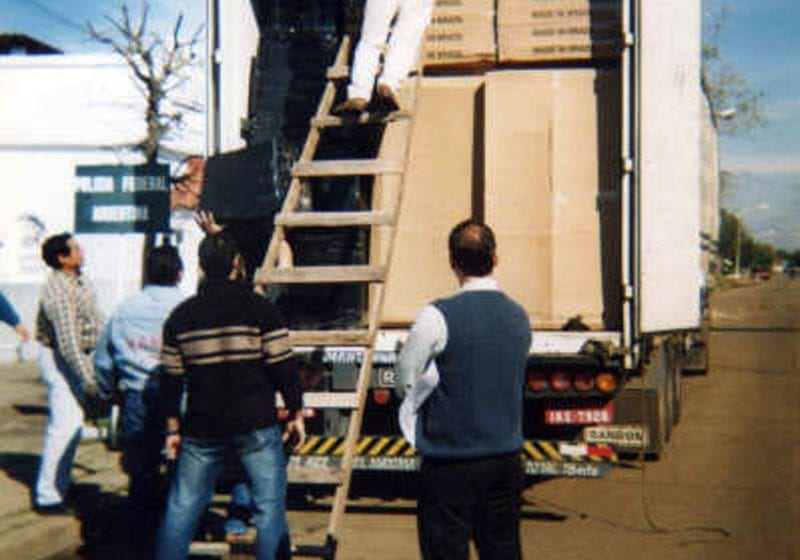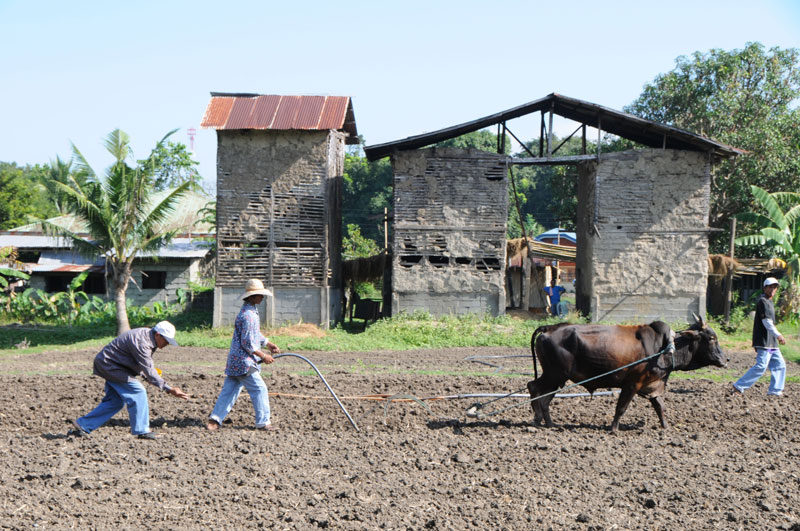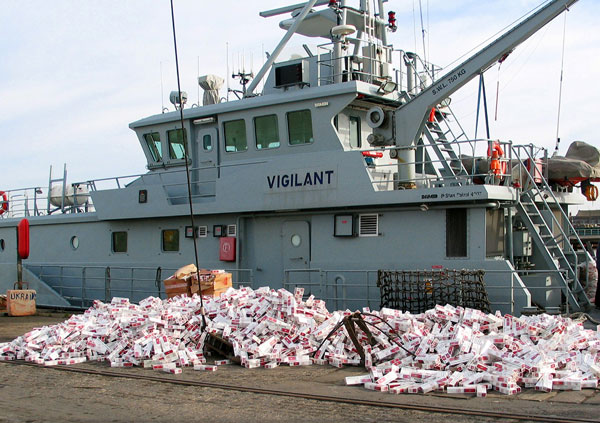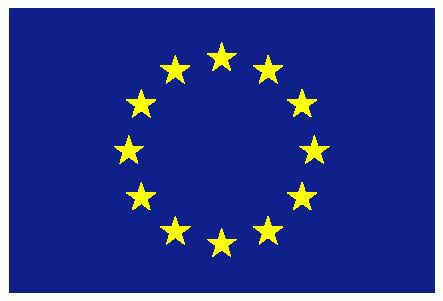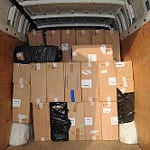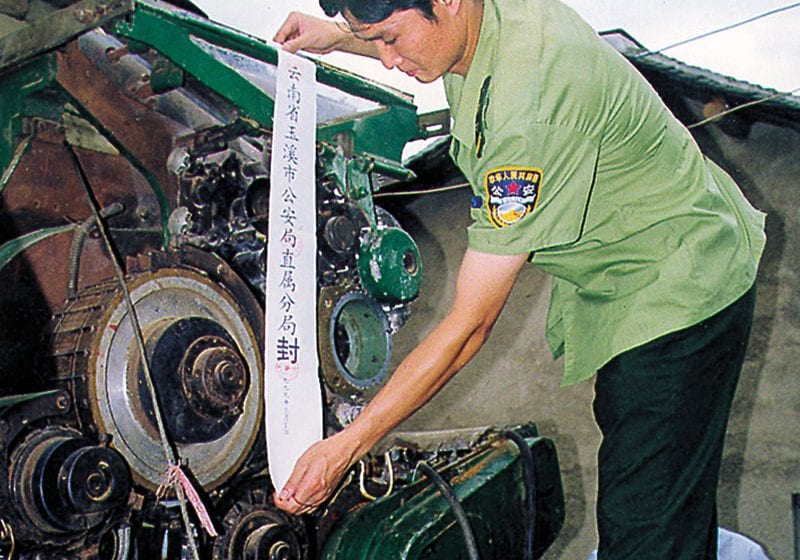Customs authorities in China’s Zhejiang Province have arrested 27 suspects allegedly involved in smuggling heat-not-burn devices and consumable sticks with a value of more than 400 million yuan (US$58.4 million), according to a Xinhua news agency story.
Customs representatives speaking in the city of Ningbo on Monday said that more than 470,000 cartons of sticks had been confiscated in the latest operation.
Earlier, 30,000 cartons of sticks and 500 tobacco-heating devices had been seized while taking down three cross-border smuggling gangs.
A suspect surnamed Li was said to have confessed that his accomplice had bought sticks and devices in Japan to smuggle them into China.
Li alone was said to have smuggled more than 100,000 cartons before his arrest.
Investigators were said also to have identified nearly 300 other smugglers.
The Xinhua story said that ‘electronic cigarettes’ could not be sold in China legally. However, it said, smugglers resorted to online platforms and instant messaging applications to sell them disguised as other products.
The story referred to the smuggled products throughout as ‘electronic cigarettes’, but it seems likely that they were in fact heated-tobacco products given that reference was made in the story specifically to ‘tobacco heating devices’ and ‘cartons of cigarettes’.
The story seems to be questionable also in claiming that electronic cigarettes cannot be sold in China, though, again, the question of legality could refer to heat-not-burn products. According to the recent report, No fire, no smoke: Global state of tobacco harm reduction, electronic cigarettes can be sold legally in China.
Category: Illicit Trade

Smugglers move with times

Farmers ‘barely surviving’
The Philippine Tobacco Growers’ Association (PTGA) yesterday expressed ‘grave concern’ about proposed increases in tobacco-excise taxes, according to a People’s Television story.
The PTGA said the battery of tax increases was killing the local leaf industry.
In a statement sent to the Philippine News Agency, the PTGA said cigarette taxes had gone up seven times in the past five years, something that had directly impacted leaf production and caused the displacement of a lot of farmers.
“Higher prices have led to a lot of counterfeit cigarettes and these are coming mostly from China and do not use Philippine tobacco,” the PTGA added.
According to data from the National Tobacco Administration, tobacco production went down from 68 million kg in 2013 to 48 million kg in 2017.
The PTGA said that the local tobacco industry had paid about PHP126 billion to the Bureau of Internal Revenue in 2017 alone. But despite its enormous contribution to the Government’s coffers, tobacco farmers were barely surviving.
The group said also that the increases in prices of tobacco products had contributed to a surge in inflation. ‘These cigarette prices have contributed to the spike in inflation to all-time highs,’ it said. ‘Our families are barely coping.’

Surge in illicit cigarettes
The Government of Sri Lanka might have ‘lost’ Rs18 billion in cigarette tax revenue with a record, estimated 583 million illicit cigarettes having been smuggled into the country during 2017, according to a story in The Daily Mirror citing the findings of a new report.
The surge in illicit cigarettes was said to have been driven by high taxes and the absence of a proper mechanism to combat illicit-cigarette inflows.
The report, A Baseline Study on the Illicit Cigarette Market With the Resulting Tax Implications for Sri Lanka, was co-authored by a group of academics comprising Dr. S.N. Morais, Prof. S.S. Colombage and Dr. C.N. Wickramasinghe, and funded by an unnamed ‘private consultancy firm’.
Morais said that Sri Lanka was becoming a hotspot for illicit cigarettes, which accounted for more than 15 percent of cigarette consumption in Sri Lanka, while Colombage added that a lower-than-projected revenue from cigarette taxes was an indicator of the existence of a massive illicit market. According to him, the realized budget revenue from cigarette taxes was 3.3 percent lower than had been forecast for most of the years between 2009 and 2017. “It is noteworthy that the actual value was lower than the forecast value in six out of nine years, indicating the existence of illicit trade,” he said.
And he said that tax increases alone would not bring down cigarette consumption in Sri Lanka. “Although the weighted average excise tax rate rose by 192 percent, the sales of cigarettes declined only by 26 percent during the period 2010-2017,” he said.
“Even the small reduction cannot be regarded as a decline in the overall smoking prevalence in the country, as smokers may have shifted to the illicit cigarette market, thereby offsetting the fall in legitimate cigarette sales.”
Wickramasinghe said that illicit cigarette consumption was high among migrant communities and low-income consumers.
In some places, the price of an illicit cigarette was 30 percent lower than that of a licit cigarette. However, in other locations, certain illicit brands were sold at a premium.
Illicit cigarettes were sold also by mixing them with licit cigarettes, while charging the standard price. This happened because it was difficult for the average smoker to differentiate cigarettes by appearance, though there were differences in taste. In such cases, the traders earned higher profits because cheap, untaxed cigarettes could be sold at higher prices.
Wickramasinghe pointed out that illicit cigarettes were smuggled into Sri Lanka to meet the demand created by migrant communities for cigarettes produced in their home countries. “These migrant communities have special distribution networks and large quantities of illicit cigarettes are reportedly marketed using online platforms operated in their languages,” he said.

EU system on right track
The EU Commission has said that the EU traceability system for tobacco products is fully compliant with the World Health Organization’s Protocol to Eliminate Illicit Trade in Tobacco Products (Protocol).
The Commission was replying to two questions posed by the Romanian member of the EU Parliament, Cristian-Silviu Buşoi.
In a preamble to his questions, Buşoi said that during the eighth session of the Conference of the Parties to the WHO’s Framework Convention on Tobacco Control (COP8) and the first meeting of the parties to the Protocol (MOP1) held in Geneva in October 2018, WHO Spokesperson Dr. Stella Bialou had justified the non-compliance of the EU’s Tobacco Products Directive (TPD) in respect of tobacco tracking and tracing because the adoption of the TPD had preceded the ratification of the Protocol.
‘Moreover, on 9 June 2016, Parliament voted to ratify the Protocol and all member states voted in favour in the Council, leading to its official ratification by the EU on the 24 June 2016,’ he said, before asking:
- ‘How and when will the Commission remedy this discrepancy, now that the Protocol has been ratified by the EU?
- ‘How is the Commission addressing the situation of the remaining 15 member states that have not ratified the WHO Protocol individually?’
In reply to the first question, the Commission said that the EU traceability system for tobacco products established under the TPD was fully compliant with the Protocol established under the WHO’s Framework Convention on Tobacco Control (FCTC).
‘The EU was involved in negotiating the FCTC Protocol, adopted in 2012,’ the Commission said. ‘The FCTC Protocol (in particular Article 8) was taken into account when the EU adopted its system in 2014. The EU system, which will be in place by 20 May 2019, is based on Article 15 TPD and complemented by Commission Implementing Regulation (EU) 2018/574 and Commission Delegated Regulation (EU) 2018/573 adopted in December 2017, which following the positive scrutiny of the latter act by the co-legislators entered into force on 6 May 2018.
‘Member states’ competent authorities and the Commission exercise full control over this system. Several measures ensure the full compliance with the FCTC Protocol, notably: independent generation of unique identifiers, independent storage of traceability data with real time visibility for enforcement purposes, as well as high density and standardisation of reporting events in terms of time and content. The Commission sees no reason to introduce any changes to the design of the EU system.’
In answer to the second question, the Commission said that member states had unanimously supported the ratification of the Protocol by the EU, for matters falling under EU competence.
‘As for matters falling under national competence, to date 11 member states have ratified the Protocol,’ it said. ‘There are national procedures ongoing in the remaining member states. The Commission regularly organises meetings with national experts to support the member states in ratifying and implementing the Protocol.’

Illegal trade evolving
The Internet and courier services are increasingly being used for smuggling tobacco products, including counterfeit ones, in China, according to a Xinhua News Agency story.
Zhao Hongshun, deputy chief of the State Tobacco Monopoly Administration, told a press conference on Friday that the production of and trade in counterfeit tobacco products had evolved.
Production sites were now changed frequently, while those involved in the illegal trade used Internet-based distribution and decentralized modes of transportation.
In response, Zhao said, China’s tobacco authorities and public security agencies would launch a campaign targeting crimes related to tobacco products that were transported through courier services.
Between January and November 2018, 363,000 cartons of fake cigarettes and 137,000 cartons of smuggled cigarettes were seized by law enforcers, Zhao said.
At the same time, 6,306 suspects were detained, of whom 2,631 were subject to criminal prosecution.
India staying on track
A panel of officials from India’s ministries of finance and health are considering how to implement a track-and-trace system for tobacco products, according to a story in the latest issue of the BBM Bommidala Group newsletter.
The plan is that the system, aimed at curbing the illegal trade in tobacco products, will be aligned with the World Health Organization’s Protocol to Eliminate Illicit Trade in Tobacco Products.
The WHO requires that, within five years of becoming signatories to the Protocol, countries must establish a track-and-trace system.
The story said that India was examining a system adopted by countries including Brazil, Kenya and Turkey.
Illegal trade reduced
Pakistan is the ‘top’ country in Asia when it comes to the illegal cigarette trade, according to a story in The News citing figures from a new report.
But the good news is that the consumption of illicit cigarettes declined in the country in 2017.
The country’s annual illegal trade in cigarettes is estimated by Oxford Economics at 32.6 billion cigarettes, or 41.9 percent of the total cigarette trade.
The Oxford Economics report, Asia Illicit Tobacco Indicator 2017: Pakistan, was made available to the media by Philip Morris International on Friday.
It said that Pakistan was losing more than Rs50 billion in taxes to the illegal trade in the country.
Total consumption (licit and illicit) was estimated at 77.8 billion cigarettes in 2017, down by 10.3 percent on that of 2016. Of this total, an estimated 58.0 percent was licit domestic cigarettes, 0.1 percent was licit non-domestic cigarettes, and 41.9 percent was illicit cigarettes.
Domestic illicit cigarettes accounted for nearly three-quarters of all illicit cigarettes consumed in 2017, the data showed.
The consumption of illicit cigarettes declined by an estimated 14.0 percent in 2017 to 32.6 billion cigarettes, underpinned by an 11.4 percent decline in the consumption of domestic illicit cigarettes and a 20.5 percent fall in the consumption of non-domestic illicit cigarettes. ‘This is the first time since 2013 that illicit consumption has fallen in Pakistan,’ the report said.
The decline in the consumption of illicit cigarettes was said to have coincided with a series of regulatory and enforcement initiatives.
‘In January 2017, the Federal Board of Revenue (FRB) constituted a joint committee for the monitoring, vigilance, and scrutiny of the cigarette/tobacco sector in response to the rise in illicit consumption, and in recognition of the links between tobacco smuggling and financing terrorism,’ the News reported.
‘The committee, known as the Inland Revenue Enforcement Network (IREN), was tasked with monitoring and developing strategies to combat the illegal cigarette trade. In the first year of operation, IREN seizures amounted to 1.63 billion non-duty-paid cigarettes and raw tobacco. In July 2017, the FED (federal excise duty) was restructured with the introduction of a third low-tax-tier in an attempt to encourage producers of illicit tobacco to formalise and become better regulated.’
End to agreements sought
A Croatian member of the EU Parliament has asked the Commission if it believes it is feasible to terminate by May agreements that it entered into with tobacco manufacturers and that were aimed at countering the illegal trade in tobacco products.
In a preamble to two questions, Biljana Borzan said that, in 2016, Parliament had called on the Commission not to renew such an agreement with Philip Morris International.
‘Last April, it expressed the conviction that the agreements with the other tobacco companies should also be terminated and called on the Commission to present the feasibility of doing so by the end of the year,’ she said.
‘The Tobacco Products Directive introduced a traceability system for tobacco products, which will be operational on 20 May 2019, following the recent approval of the secondary legislation.
‘In addition, the WHO [World Health Organization] Protocol to Eliminate Illicit Trade in Tobacco Products, which was ratified by the EU in 2016, entered into force last September.
‘As Parliament made clear in 2016 and 2017, these agreements are becoming irrelevant and send a damaging and counterproductive message to third countries that the EU is engaging in inappropriate dealings with the tobacco industry.’
Borzan asked:
‘Does the Commission believe that it is feasible for the agreements with the tobacco companies to be terminated by 20 May 2019, as Parliament requested in its report?
‘When does the Commission expect to have a response ready for Parliament?’
Borzan’s questions are due to answered in writing.
Smuggling machinery
In a statement issued during the weekend, the Philippines’ Finance Secretary ordered the Bureau of Internal Revenue (BIR) and the Bureau of Customs to work closely with their counterparts in Beijing to stop the illegal entry of cigarette-manufacturing machinery, according to a story by Elijah Joseph C. Tubayan for Business World.
‘What we have to stop is the import of the equipment, which is coming from China,’ Secretary Carlos G. Dominguez III was quoted as saying.
This was the second such intervention in a fortnight. At the end of November, the Philippines Customs Commissioner Rey Leonardo Guerrero said that the Customs Bureau would ask its counterpart in China to stop exports of cigarette-manufacturing machinery to the Philippines in a bid to crack down on the manufacture there of fake cigarettes.
According to the latest story, the Department of Finance said that raids conducted by the BIR earlier this year had indicated that, after the government had cracked down on the illegal entry of fake cigarettes and fake tax stamps, smugglers had shifted to illegally importing cigarette machines capable of making fake versions of popular brands.
Starting in June, the BIR was said to have confiscated cigarette-making machines, packing machines, filter-making machines, and fake tax stamps found in warehouses in Pampanga and Cagayan de Oro, as well as several other warehouses elsewhere in Luzon and in Mindanao.
The proliferation of counterfeit cigarettes is a revenue problem for the government and legitimate tobacco manufacturers. Philip Morris Fortune Tobacco Corp. Inc. (PMFTC) and JTI Philippines have pressed the BIR to clamp down on fake cigarettes and, last week, the National Bureau of Investigation, acting on a tip from PMFTC, raided an unlicensed cigarette factory in Pangasinan that is said to have been the country’s main source of fake cigarettes.
The BIR commissioner Caesar R. Dulay is on record as saying that fake cigarettes became more prevalent, especially outside Metro Manila, after the government imposed higher excise taxes on tobacco products in January.
Another bill, raising tobacco taxes further is advancing in Congress after the House of Representatives approved it on its final reading last week.
Taxing problem in Pakistan
Multinational tobacco companies are flourishing at the expense of Pakistan’s economic interests because of flaws in the country’s taxation mechanism and an absence of suitable laws to regulate the way these companies function, according to a story in Pakistan Today quoting ‘sources’.
Looking at multinational companies more widely, the story said that a lack of governmental oversight and ineffective regulatory checks had allowed the Pakistan operations of these companies to exploit the existing situation and enjoy ‘mega corporate benefits beyond imagination’.
In recent years, the story said, Philip Morris (Pakistan) Limited (PMPKL) had used losses of millions of rupees to justify the large-scale downsizing of its staff and the closure of its factories.
However, after the introduction of a ‘highly controversial’ third-tier tax slab by the former government in the fiscal year 2017-18, PMPKL had shown a profit of Rs724.14 million in the first half of this year ending on June 30, 2018.
During the same period of last year, PMPKL had recorded a loss of Rs463.45 million.
The story said that the introduction of the third-tier tax slab had benefitted the tobacco companies without doing any good to national revenues, though it quoted a Philip Morris International results commentary that seemed to dispute this.
According to the story, a PMI quarterly report for the third quarter ended September 30, the company’s gross turnover increased by 25 percent on that of the same period of 2017, mainly because of the normalization of trade inventory movements and partial recovery of sales volumes after the introduction of the third excise tax tier in the 2017/18 federal budget.
The company had recorded an operating profit before tax of Rs1,194 million for the nine months period ended September 30, up from Rs391 million for the same period of 2017.
During the period ended September 30, the company’s contribution to the national exchequer, in respect of excise duty, sales tax, and other government levies, was Rs13,648 million, up from Rs11,429 million during the same period of 2017. PMI was quoted as saying that the third excise tax tier had provided a wider and more sustainable base for the growth of government revenues, which would have otherwise seen a significant decline.
The introduction of the third excise tier was said to have arrested the growth of non-tax paid cigarette segment by narrowing the price gap between tax paid and non-tax paid cigarettes.
However, the Finance Supplementary Bill (September 18, 2018) had imposed a 46 percent increase in the excise rates for the third excise tier, which had led to a tax-driven price increase that had again widened the price gap between the tax paid and non-tax paid cigarettes.

